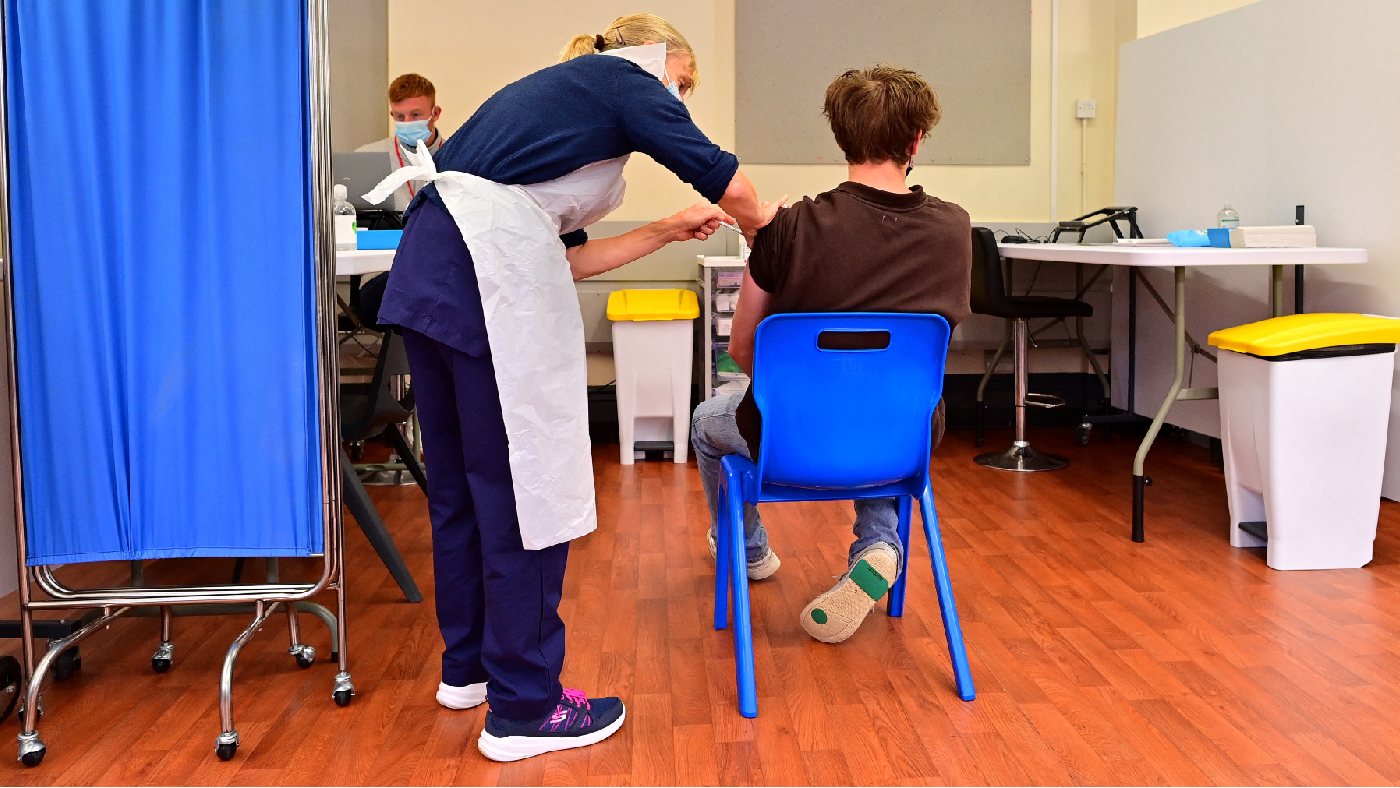The tally of Covid-19 vaccine deaths examined
Analysis of UK death registration data suggests very few people have died as direct result of Covid jab

A free daily email with the biggest news stories of the day – and the best features from TheWeek.com
You are now subscribed
Your newsletter sign-up was successful
Just nine of the more than 46 million people vaccinated against Covid-19 in the first eight months of the jabs rollout died directly as a result, according to number crunching by the Office of National Statistics (ONS).
In a newly published blog post, ONS head of mortality analysis Sarah Caul explained how she used two sources to determine the total tally of deaths between December 2020 and August 2021 in which the vaccine was a contributing factor.
The first was the Yellow Card Scheme by the Medicines and Healthcare products Regulatory Agency (MHRA) - a digital initiative that allows any member of the public or health professional to report a suspected side effect of a drug.
The Week
Escape your echo chamber. Get the facts behind the news, plus analysis from multiple perspectives.

Sign up for The Week's Free Newsletters
From our morning news briefing to a weekly Good News Newsletter, get the best of The Week delivered directly to your inbox.
From our morning news briefing to a weekly Good News Newsletter, get the best of The Week delivered directly to your inbox.
According to latest Yellow Card data, between 9 December 2020 and 8 September 2021, 1,645 people died shortly after being vaccinated against Covid. But Caul pointed out that a report of a side effect “is not proof of causation” and that these deaths “will not have been fully investigated at the time of reporting”.
“Some people will, sadly, die by chance shortly after receiving a vaccine, so the death can be mistakenly attributed to the Covid-19 vaccination by a family member or carer,” she wrote.
Caul also looked at data registrations analysis produced by the ONS, National Records of Scotland (NRS) and Northern Ireland Statistics and Research Agency (NISRA) - which gave a very different result.
The three statistical agencies found a total of nine cases where the vaccine was found to have “contributed” to a death in the UK. Four were in England, four in Scotland, none in Wales and one in Northern Ireland, where the data covered the period up to June.
A free daily email with the biggest news stories of the day – and the best features from TheWeek.com
Five of the total nine deaths listed the vaccine as “the underlying cause” on the deceased person’s death certificate.
Weighing up which data set is more accurate, Caul argued that while the Yellow Card Scheme could “give an important early warning about possible deaths” relating to the coronavirus jabs, death registrations were “the best way to know if the vaccine was part of the chain of events that led to the death”.
And although the number of vaccine-related deaths is likely to rise slightly as the jabs rollout continues, the tally “can be expected to remain far lower than those shown in the Yellow Card data”, she concluded.
ONS data has also shown that fully vaccinated people account for only a tiny fraction of deaths caused by Covid. A total of 256 of 51,281 such fatalities in England between 2 January and 2 July were people who had received their second vaccination more than two weeks before testing positive.
In a further boost for the pro-jabs campaign, the findings of a large-scale study published yesterday in The Lancet medical journal found that two doses of the Pfizer/BioNTech Covid vaccine was “highly effective” at preventing hospitalisations for at least six months.
And “crucially”, said The Guardian, the jab was found to be effective against “all variants, including delta”.
“Our study confirms that vaccines are a critical tool for controlling the pandemic and remain highly effective in preventing severe disease and hospitalisation, including from the Delta and other variants of concern,” said the study’s lead author, Dr Sara Tartof, of the Kaiser Permanente Southern California Department of Research and Evaluation.
Kate Samuelson is The Week's former newsletter editor. She was also a regular guest on award-winning podcast The Week Unwrapped. Kate's career as a journalist began on the MailOnline graduate training scheme, which involved stints as a reporter at the South West News Service's office in Cambridge and the Liverpool Echo. She moved from MailOnline to Time magazine's satellite office in London, where she covered current affairs and culture for both the print mag and website. Before joining The Week, Kate worked at ActionAid UK, where she led the planning and delivery of all content gathering trips, from Bangladesh to Brazil. She is passionate about women's rights and using her skills as a journalist to highlight underrepresented communities. Alongside her staff roles, Kate has written for various magazines and newspapers including Stylist, Metro.co.uk, The Guardian and the i news site. She is also the founder and editor of Cheapskate London, an award-winning weekly newsletter that curates the best free events with the aim of making the capital more accessible.